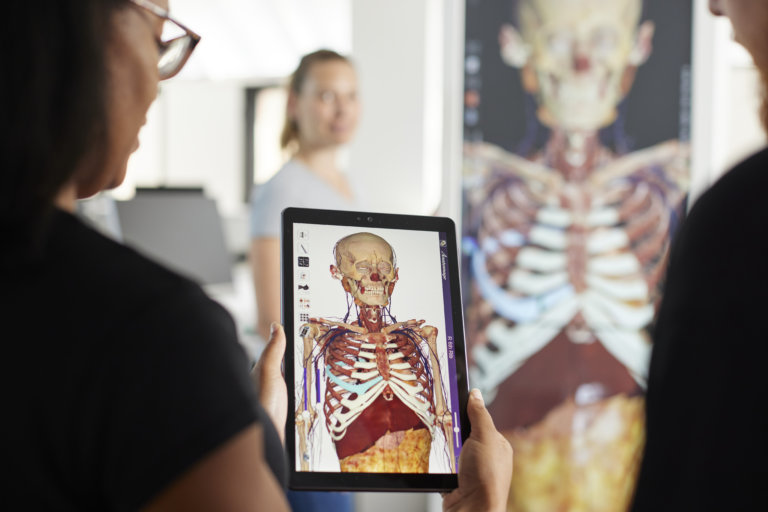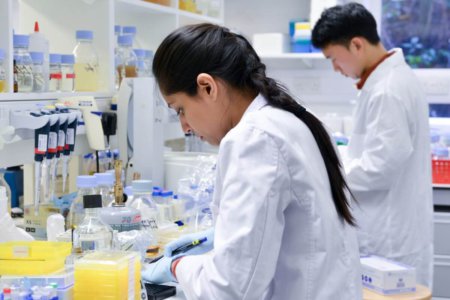
The life sciences, encompassing fields from biology and zoology to botany and ecology, has long been the frontier of understanding life’s intricacies. The discovery of antibiotics by Alexander Fleming in 1928, for example, has been used in a wide variety of research, such as selection tools in transformation and cell culture, as well as a host of other fields and studies.
Today, there is certainly a demand for more experts in this field. In the UK, significant advancements are happening within the life sciences sector — the amount of venture capital investment is more than doubling and there is a 20% increase in the number of firms over the past five years. As a result, the demand for lab space to house startups and mid-size companies has grown.
It’s a chance for students to take advantage of this opportunity. The best life sciences degree will prepare you to overcome challenges within the industry through stellar student support, hands-on learning, and room to grow transferable skills. The universities below offer degrees with these advantages — and so much more.
Manchester Metropolitan University

The Department of Life Sciences is part of the Faculty of Science and Engineering, one of the largest science and engineering educators in the UK with over 5,000 students. Source: Manchester Metropolitan University
Manchester Metropolitan University offers some of the best programmes in the life sciences and a life-changing experience in one of the world’s most iconic cities. Here, your programme includes up-to-date findings in specialist research fields and guest lectures from world leading experts and key figures from clinical and industrial backgrounds. Laboratory skills are built into the undergraduate programmes, culminating in final year with real world projects solving real clinical problems, and postgraduate students conducting independent research in laboratories with specialist equipment to address local and global health challenges.
Regardless of the programmes you choose, personal tutors, programme support tutors, and specialist skills tutors are always available to address any questions you have. Beyond this, all programmes, including the BSc (Hons) Human Physiology offer online video support too, which provides additional explanation and guidance on coursework, exam paper guidance, and lab demonstrations.
Your employability is a top priority, which is why the department is part of our award winning RISE extracurricular programme, which allows students to complete work experience and internships. Developed career support throughout studies is embedded in every year of your degree. BSc students hone technical laboratory and employability skills through their embedded technical skills units as well. Some degrees, like the BSc (Hons) Biomedical Science, offer an option to complete a 48-week placement in an Institute of Biomedical Science (IBMS) approved training laboratory.
To learn more about the BSc (Hons) Biomedical Science, BSc (Hons) Human Physiology, MSc
Biomedical Science, MSc Human Physiology and MRes and PhD Research Degrees in Bioscience, click here.
Queen’s University Belfast

Queen’s University Belfast is globally recognised for its excellence in education and research. Source: Queen’s University Belfast/Facebook
Queen’s University Belfast is a leader in research and innovation, renowned for producing highly skilled graduates. Those who choose to study at the Faculty of Medicine, Health and Life Sciences — which houses the School of Medicine, Dentistry and Biomedical Sciences; School of Biological Sciences; School of Pharmacy; and School of Nursing and Midwifery — benefit from a perfect balance of world-class teaching resources and internationally-recognised research infrastructure.
The Institute for Global Food Security (IGFS) is one of four interdisciplinary Global Research Institutes that focus on tackling major international challenges — in this case, the integrity of our food systems. The new, purpose-built 40 million pounds building, shared with the School of Biological Sciences, boasts a superb teaching and research environment for 750 students and 170 staff learning and working in areas such as agriculture, food science, food safety, and more.
The faculty consists of esteemed professors and researchers who are at the forefront of their respective fields, providing students with a high-quality education. For example, research led by Professor Mark Lawler, Chair in Translational Cancer Genomics and Professor of Digital Health, received a highly commended award in the Impact of the Year category at this year’s Health Data Research UK’s One Institute Virtual Conference. Likewise, Professor Katrina Campbell is developing rapid diagnostic tests to detect blue green algae (cyanobacteria) and their toxins in the environment.
Cardiff University

Supported by a range of high quality facilities, topical courses and advanced research at the School of Biosciences spans the full range of the life sciences. Source: Cardiff University/Facebook
Zoom in on the southeast coast of Wales — a country in the UK with breathtaking sights — and you’ll discover Europe’s youngest capital city: Cardiff. Look a little closer, and you’ll find a haven for aspiring leaders in life sciences. Cardiff University’s College of Biomedical and Life Sciences focuses on enabling students from a broad range of backgrounds to either advance their passions or launch successful careers in new directions.
The college brings together seven schools in Biosciences, Dentistry, Healthcare Sciences, Medicine, Optometry and Vision Sciences, Pharmacy and Pharmaceutical Sciences, and Psychology each with immense strength for research and teaching in Wales, the UK, and across the globe.
Whether you aspire to be a cancer researcher, laboratory technician, or science blogger, Cardiff University is the ideal base to launch your career in the life sciences. Studying bioscience here is a chance to specialise in biochemistry, biological sciences, neuroscience, or biomedical science. There is also an option to transfer to other degrees offered by the School of Biosciences, including its integrated master’s degrees and three additional “exit” degrees in Anatomy, Genetics and Physiology.
Graduates have an excellent reputation for finding employment after they complete their studies. Data showed that 93% of biosciences graduates were in employment or further studies within six months of graduation. Many go on to study for a PhD or master’s degree, while others enjoy successful careers in science-related fields such as research and development, conservation, environmental management, medical research, and more.
*Some of the institutions featured on this article are commercial partners of Study International









